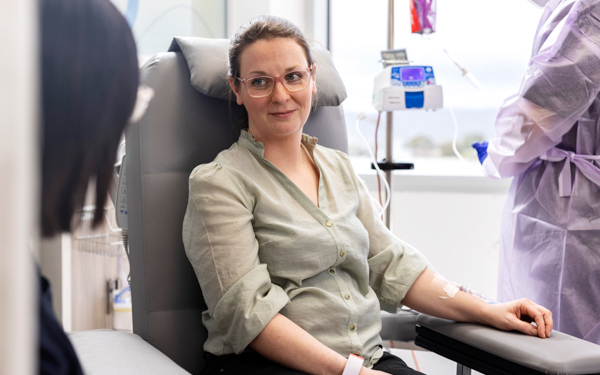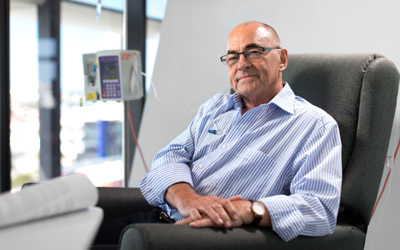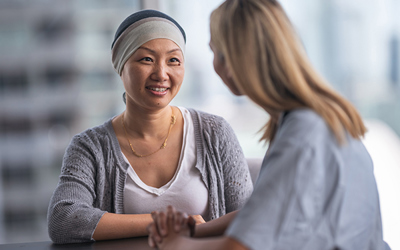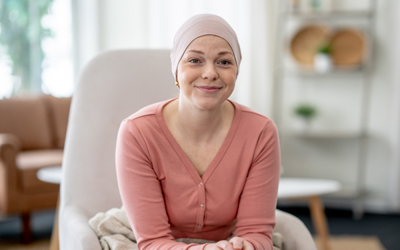What is chemotherapy?
Chemotherapy, also known as SACT (Systemic Anti-Cancer Therapy) services, is the use of anti-cancer drugs to destroy cancer cells. Many different kinds of chemotherapy medicines and treatment plans are available. The kind of medicines given, and how often they are needed, will depend on the type of cancer you have, how it responds to treatment, and how your body responds and copes with treatment. At Icon, we will talk your through your treatment plan and why it’s the best possible approach for you.
How is chemotherapy delivered?
Chemotherapy is typically given as an outpatient at a day hospital like our Icon chemotherapy treatment centres. We believe that delivering cancer care, closer to home is an important part of delivering the best possible care for our patients.
Treatment may be given orally, through a needle inserted into the vein (known as a catheter), directly into the organ or tissues affected by the cancer, or as a cream. Chemotherapy is usually given in multiple courses (cycles) for a set amount of time, or for as long as the treatment is effective. Having the treatment in cycles allows time for the healthy cells in your body to recover between treatments.
Chemotherapy may be used on its own, or in combination with other types of treatment, such as before or after surgery or radiotherapy, or together with radiotherapy.
What are the side effects of chemotherapy?
While chemotherapy destroys cancer cells, it is the damage to healthy cells that causes many of the common side effects of chemotherapy.
Side effects vary depending on the type of chemotherapy drug used and the individual person.
Most are temporary and can be treated or managed.
Can hair loss be minimised?
For many cancer patients, hair loss is a deeply emotional side effect of treatment. Scalp cooling technology helps to minimise hair loss associated with chemotherapy treatment.
The scalp cooling system reduces the temperature of a patient’s scalp by a few degrees immediately before, during and after the administration of chemotherapy. The cooling effect reduces blood flow to hair follicles and can therefore minimise hair loss.
Frequently asked questions
Find a world class consultant near you.
Highly experienced consultants and the latest technology available in the world.
At Icon, you can be sure you are accessing the care you deserve.





